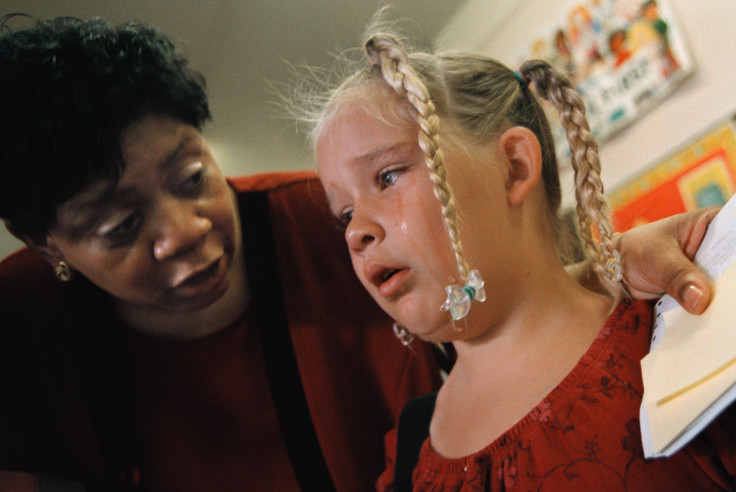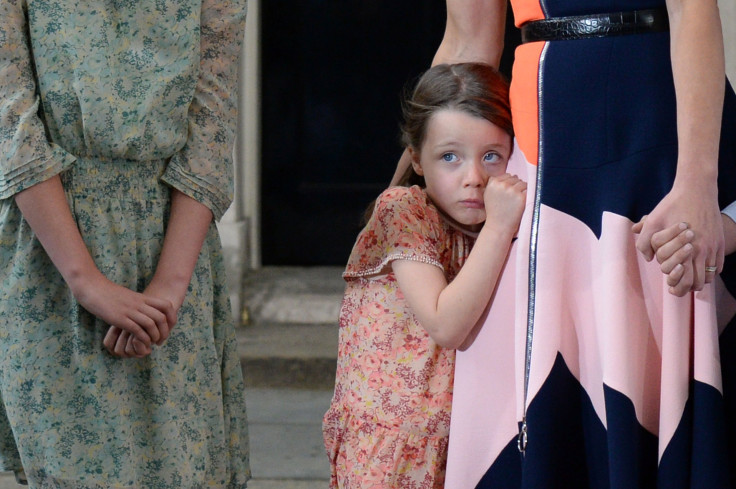Saying 'No' To Your Children Is Good For Them

Most parents want to give their kids everything they want in life. But according to parenting experts, saying “yes” to every demand that your children make may not be the right approach when it comes to instilling the right values in them.
Traversing the journey of becoming an assertive parent from a passive one can often be hard, especially for those who remain busy with work for the most part of the day, and do not get time to spend with their young ones. So naturally, when such a parent comes back home only to find their kid throwing tantrums, the easier option is to succumb to the demands.
Whatever be the reason, it has been observed that modern parents find it harder to say “no” to their children. “I think the pendulum has swung completely another way from parenting 30 or 40 years ago. It has swung from an authoritarian parenting style to a permissive parenting style,” Georgina Manning, the Director of Wellbeing For Kids — an organization based in Melbourne, Australia, that helps parents reach social and emotional business outcomes — told the International Business Times.
“This has been partly due to the self-esteem movement and also the wellbeing message that has been hijacked to a certain extent," she added. "Somewhere in the middle of these two extremes is a more effective way where parents are still in charge but also emotionally tuned in and supportive of our children, where we can be present and involved in our children's lives but also teach limits and positive values.”
Manning also underlined that no matter how difficult parents may find it to deny their children their immediate wishes, it is important for the kids to hear the word "no."
“Children need to feel a range of emotions and it is important we don't shield our child from these,” she said. “We want children to become comfortable with the uncomfortable over time. Children don't suddenly learn about feeling a range of emotions or handling strong emotions at 18 — we need our kids to learn about their emotions from a young age and be coached in how to manage these feelings over time.”
Delayed gratification, as a life skill, is often taken for granted and parents today assume their children learn about earning what they get in life as they grow up.
“As adults, we have to wait for things and work hard for rewards,” Manning told the IBT. “Teaching children to wait for what they want and they may not always get what they want are lessons best learned early. Having a false sense of how the world works is setting our kids up for failure. We are also at risk of developing entitlement in children if they get what they want when they want. As adults, we would not be able to hold down a job or have healthy deep relationships with an entitled attitude such as this.”

According to Bea Marshall, a parenting coach based in the United Kingdom, contrary to the popular belief and the negative notion attached to the word “no,” it actually does not end up lowering self-esteem in children, when spoken by parents in a limited manner.
“When 'No' is used appropriately, it is a word of safety and protection,” Marshall told IBT. “In most cases, conventional parenting uses 'No' as a word of control. When children experience 'No' as an empowered word — that is respected when they speak it themselves — they will respond positively to the word 'No'.”
However, Marshall is the founder of “Yes Parenting,” a movement based in the U.K. that focuses on saying “yes” to children. Her movement operates on the idea that children should be given the freedom to make their own choices by responding positively to their desires.
Insisting that parents today recognize the importance of striking a friendship with their children from a young age, despite adopting an assertive role, she said, “A friend is someone you enjoy spending time with, you have fun with them, you learn about the world together, you share thoughts and opinions in a caring and respectful way, you honor each other's preferences and interests and you talk to a friend about what is important to you… This is the same when we are friends with our children."
But Manning holds a different perspective on this. “Our job description as a parent is not to be a friend but a coach in life. Coaches can still have positive, close, warm relationships but not fall into the role of a friend… It is very hard to switch from coach role to friend role and this confuses children. We can still be very emotionally attuned to our children as a coach to be able to support them effectively as they are growing up, but we don't need to switch to a friend role to get that emotional intimacy or to be an effective support,” she said.
At the end of the day, it is important to remember to take it slow and figure out what works for you as a parent and for your kid, because every individual is different and good parenting cannot be boiled down to one size fits all approach.
© Copyright IBTimes 2024. All rights reserved.












